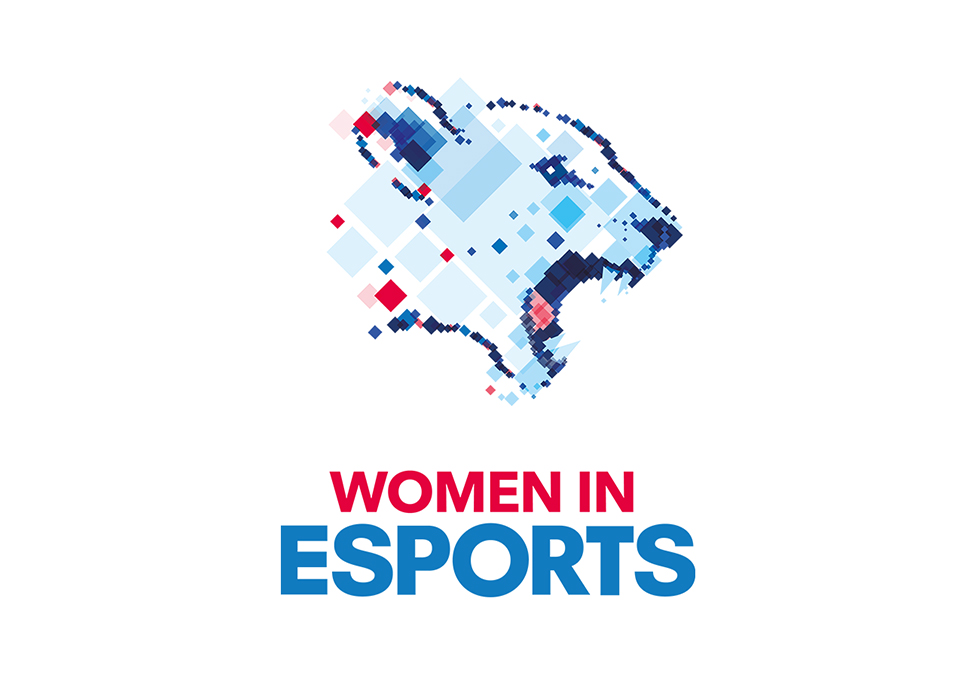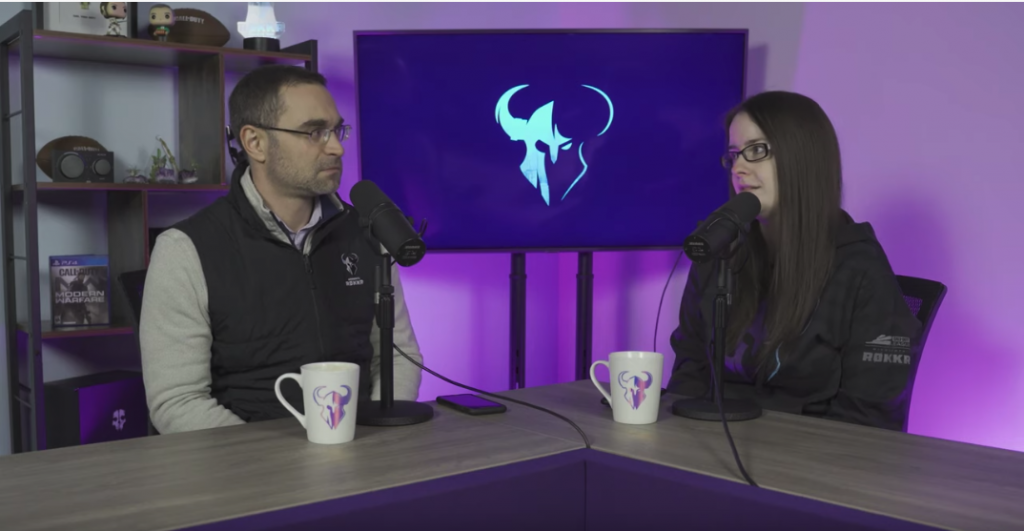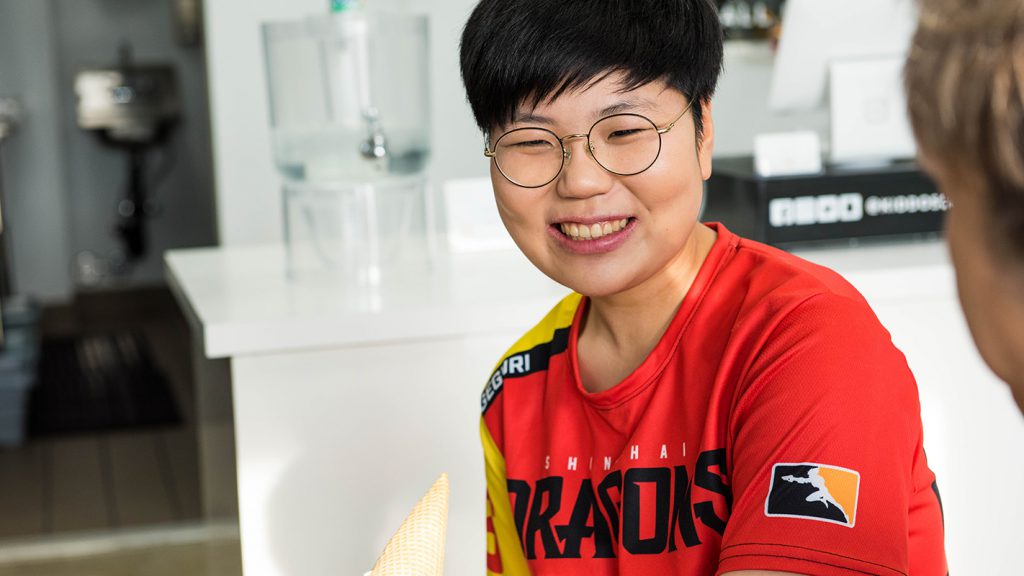The British Esports Association’s Women in Esports campaign was launched in 2019 to celebrate and highlight women in the esports industry. The campaign worked toward raising awareness and inclusivity in the esports industry.
Now, the campaign is transforming into an “ongoing initiative” in the form of the Women in Esports committee.

Yinsu Collins, a freelance esports journalist, spoke to Esports Insider about her inclusion on the committee: “I’m thrilled to be a part of the BEA Women of Esports committee – I truly believe it’s an initiative that has the legs to do some good things in the UK esports scene. I decided to join the committee because I didn’t want to pass up on the opportunity to be involved with something that promotes diversity and inclusion, especially in such a male-dominated space.
“With the current global health crisis, we’re seeing more and more eyes on the esports industry and more and more people and young kids from all different backgrounds rely on gaming as a source of entertainment. This means that it’s a crucial time to be able to do my part, and along with my peers in the committee, lend a hand to the amazing girls and women looking to join this space.”
The committee’s diverse experience and expertise will help guide the board’s initiative by meeting at least three times a year.
Collins continued: “It’s important to approach this in the right way. We’ve seen some out of touch organisations actually do things that have damaged our agenda and set things back. BEA have already employed some amazing women and have always had a reputable way of executing ideas, which is why I could not be happier to be working with them.”
RELATED: British Esports Association partners with North America Scholastic Esports Federation
The lack of representation for women in esports is a major issue in the industry. The number of women playing or working professionally in esports is estimated to be about five percent. There’s an aura of fear that surrounds women that pave their own paths in the industry. In an atmosphere that is still a “boy’s club,” it’s important to shed light on the roles women are filling.
Kirsty Endfield, Founder and Director of Swipe Right PR, also spoke to Esports Insider about her role in the committee: “I’m proud to support an initiative such as British Esports Association’s Women in Esports Committee. Celebrating what women have and are achieving in the industry, and showcasing that, is vital in encouraging further inclusivity. In terms of my own role, I’ll be utilising experience in public relations to help guide the British Esports Association in the right direction and I’m happy to be working alongside so many incredible people to further help shape the UK esports industry!”
Creating a welcoming space for women is key to the growth of the esports ecosystem. Statistics state that 46 percent of women in the United States are gamers. In esports, only 30 percent of women compete. In a male-dominated industry, women struggle to retain a top spot in esports organizations throughout the world. This is because it’s difficult for women to feel included.
Recent data determined that 62 percent of women esports fans do not think that esports brands market to them. Women leagues and teams are nearly non-existent. An exception to this is Gen.G’s all-female Fortnite team, but top women esports athletes still seem to be the exception to the rule. Representation matters and the BEA’s agenda hopes to develop an esports universe to help cultivate and expand upon the talent already existing in the industry.
Ashley “Midnite” Glassel, Director of Content of Minnesota RØKKR, has a long history in Call of Duty esports. She was one of the core members of OpTic Gaming, who had initially been brought on as part of OpTic Girls and remained as a permanent content creator after the branch dissipated. She helped influence growth through live streams and videos for nearly a decade before the popular organisation was sold to Immortals Gaming Club.
Now, Midnite serves as one of the main faces behind Call of Duty’s Minnesota RØKKR, one of the 12 competing teams in the newly-franchised Call of Duty League.

Johanna Faries, Commissioner of Call of Duty Esports at Activision Blizzard, spent 12 years working for the NFL in various roles. Starting as the Coordinator of Innovation and Business Development, Faries moved up in the NFL before becoming the Vice President of Club Business Development in 2018.
“There’s so much that I’ve been able to draft off of looking back on the time I spent in the NFL,” she stated in an interview with Gamer’s Edge. “An example would include how to commercialize a sports entertainment experience. It’s critically important that you develop fans because the product or the game itself is compelling to watch. It was the duality of the business and the brand building that was great and I’ve been able to kind of bring that here.”
RELATED: British Esports Association adds advisory board members
Competing might be the core of esports, but there are new and unique careers being built from the ground up, and many of the ones moulding them into executive positions are women. The Women in Esports committee hopes to shine a light on them and the barriers they face.
Maria Stukoff, Director at Maker Space at the University of Salford, told Esports Insider that she joined the committee “to help grow the esports ecosystem by providing a positive voice to action inclusivity in esports.”
She continued: “Gender balance is a complex issue and there are many hurdles for any talent to stop into this industry, but for women, that gets even more complicated.”
One of the complications is an atmosphere known to cultivate toxicity. Street Fighter competitor Ricki “HelloKittyRicki” Ortiz put a halt on her career after facing condemnation for coming out as transgender. “I feel the brunt of it now, presenting as female,” Ortiz said. “My skill takes a backseat. People question my gender identity versus me playing the game.”
In 2016, then 17-year-old Overwatch player Se-yeon “Geguri” Kim had to prove she wasn’t a hacker after several accusations led to an investigation by Blizzard Korea.
On Reddit, a post includes information on the issue: “Her dominating performance in scrims and in tournaments caught people’s attention and some of the players started to accuse her of hacking. After winning the qualifiers for the Nexus Cup, the opposing team required Artisan to report Geguri to Blizzard Korea. Two pros even bet that if she wasn’t a hacker, they would quit playing professionally.”
Blizzard Korea confirmed that Geguri’s skill was all her own, and while she felt vindicated, she stated that the accusation placed her under a lot of stress.

The stress of sexism is something many have to face in every league. Three women who battled to join the NBA 2K League had to face a road of abuse. Out of the millions of NBA 2K20 players, Hazel “hazelfierce” Childress, Wendi “ALittleLady87″ Fleming, and Amber “ABPureBlood20” Sammons proved themselves as among the 6,000 best in the world.
“When they find out you’re a female it goes downhill from there,” said Childress. She also revealed that she muted her microphone the previous year. All three women were either ridiculed or had to push past sexual advances, both from teammates and competitors. “My first combine was pretty rough. Just going in and listening to the things guys had to say was pretty discouraging,” Fleming said.
“Sometimes they try to flirt with you. It’s crazy,” said Sammons. She would try to keep their focus on the game. “Hey man, let’s just hoop, the common goal is to win.” And while they had to manage the words emotionally, they admitted that it harmed their ability to compete.
Childress played in the previous combine as a point guard but had difficulty making plays when teammates refused to listen. “The point guard is like the court general, you call the plays. But guys really don’t like to listen to instructions from a woman, and when you don’t listen, it makes it hard to win.”
What many don’t realize, though, is that this atmosphere of abuse has plagued the world of video games since its conception. However, the growth of esports has allowed several companies and professional organizations to effectively try to battle toxicity and pull in more female representation.
“Growing up when I was playing video games, I would get harassed over the mic,” Julie Truong, Director of Business Operations at Philadelphia Fusion told NBC. “I would have to mute my mic until I proved myself first.”
“You can be any gender, any height, any background and you can participate in esports,” said Danielle Cohn, Executive Director of the tech accelerator program LIFT Labs at Comcast. “If you want to build games, play games, promote games, this is a business, you can have a job in it, you can have a great job in it, and you can have a lot of fun along the way.”
But while the path to an esports career may seem more promising to women now, it’s still a constant, exasperating uphill battle.
Alice Leaman, Schools and Colleges Liaison Officer of the British Esports Association, hopes to tackle these issues. “I want to make a difference: to encourage further female participation, break down barriers, and help create an inclusive esports community for all.”
While the British Esports Association remains centred in the UK, the Women in Esports committee is developing a positive source of power and expertise across the entire esports industry. The committee’s agenda is a promising step toward global acceptance and inclusion inside of an industry that is undeniably growing.
[maxbutton id=”11″ ]
